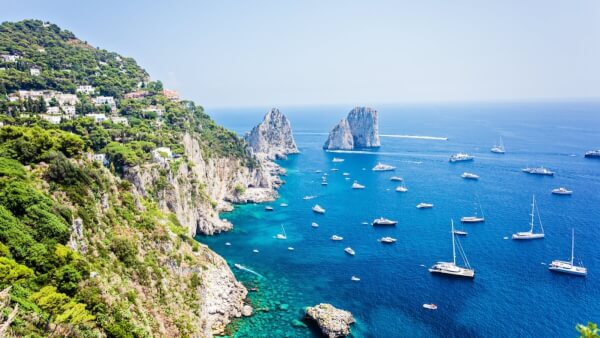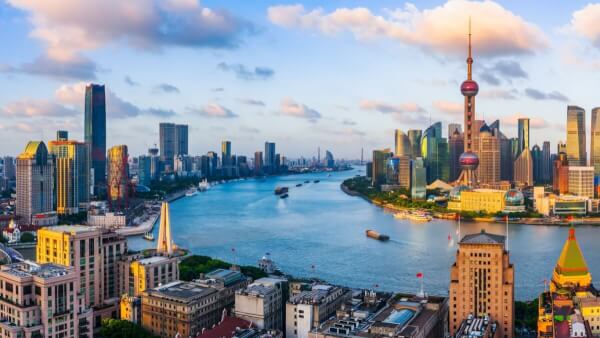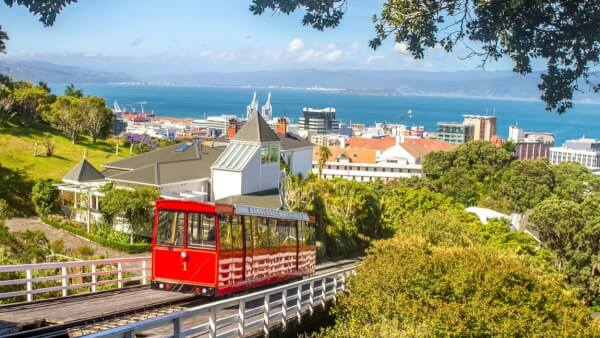Travelling to the Philippines from Australia. The Lowdown
Travelling from Australia to the Philippines? Let’s fill you in on the travel requirements, touristy and non-touristy spots and other need to knows in our guide

South Africa is known as a world class safari destination - but there’s actually so much more to do there if you have the time and budget. You can travel the wine route, head to the beach, soak up some culture, or get involved in life in the bustling cities.
There’s plenty to do in South Africa. But you need money to really make the most of your trip. Save on currency conversion and bank charges, with a Wise borderless account and linked Mastercard, and have more to spend on yourself. More on that later.
Over 80,000 Australians visit South Africa annually - and the majority of visits are trouble free. However, it’s important to note that the Australian government advises a high level of caution when visiting South Africa¹.
Crime levels in South Africa are significantly higher than in Australia, and can range from petty thefts and muggings, to kidnappings, carjackings and murder. Naturally there are certain areas which are more dangerous than others.
Research your proposed destination and itinerary thoroughly before you decide on where to go. There’s plenty of inspiration on the South African tourist board website².
You’ll also want to look at specifics for your trip, such as how to get from the airport to your accommodation safely, and which tour and travel operators are the most trusted for the activities you choose.
The best things in life may be free, but plane tickets, hotels and food are not. Save money on currency costs and bank fees, so you can do more with your time in South Africa.
When you’re changing money from dollars to rand to spend in South Africa, you’ll want to check if the exchange rate being used is fair. The way to do this is to compare the rate you get with the mid-market rate. This is a smart benchmark because it’s the rate the bank or exchange service will have received when they bought the currency in the first place.
It’s simple to keep up with the mid-market rate, using a Google search or an online currency converter. However, you might find that your chosen provider has added a markup to this rate to come up with the retail exchange rate they offer you. This is an extra fee, but it’s not always easy to spot it.
Avoid paying this extra margin by using the Wise borderless account and card. More on that later.
Check your bank account and card conditions to see if you’ll be charged a foreign transaction fee to spend or make cash withdrawals overseas. Providers vary, but you could find you have to pay a flat fee per transaction, a percentage charge - or both - and these costs can quickly mount up.
You might not have heard of DCC, but that doesn’t mean you haven’t experienced it.
DCC is where you’re asked if you want to pay in your home currency - dollars - instead of the local one - in this case, rand - when you use your card abroad.
Using your home currency is easy but you pay a high price for that convenience. Ask to use the local currency to get the best exchange rate and lowest fees.
A Wise borderless account could be exactly what you need to make your trip easier - and cut your costs dramatically.
Use your account to hold, send and spend rand like a local using the Wise borderless Mastercard. In fact, you can keep any of dozens of different currencies in the account, and use them all over the world, with no foreign transaction fees.
Just top up your borderless balance with dollars, and switch to the currency you want using the mid-market exchange rate. There are no hidden fees, just a transparent upfront charge to cover the conversion. See if you can save when you travel to South Africa, with Wise.
In most cases, doing some advance research and being sensible when you travel will be all you need to have fun and stay safe in South Africa. Find a reputable travel agent, and be wary with your belongings no matter where you are. Don’t carry anything valuable with you, and avoid disreputable areas especially after dark.
You’ll also need to take health advice before you travel. Depending on your plans, you may need immunisations or anti-malarials, and you’ll definitely want effective travel and medical insurance. Health facilities in more rural areas may not be adequate, so having insurance which covers medical evacuation is a good idea.
You’ll find detailed advice on the South Africa page on the Smart Traveller website. Smart Traveller is an Australian government supported resource, well worth a look for more on safety, health, internal travel guidelines and more.
If you are unlucky enough to find yourself in trouble when overseas, the Australian consular service may be able to offer support³.
You won’t need a visa for tourist visits of up to 90 days⁴. If you’re planning on staying longer, you’ll need to check the details of the best type of visa for your trip, online.
There’s a good range of options and prices when it comes to accommodation in South Africa. Camping and self catering are common choices, so you’ll find a lot of places to choose from if you’re travelling independently. At the other end of the spectrum, you can also get high end luxury, which comes with a corresponding price tag.
Booking ahead is advisable, especially in peak season or if you’re headed to a popular destination. Here’s what the Rough Guide suggests you budget per night for planning purposes⁵:
Urban transport in South Africa is a weak spot. There are buses and minibuses - but Australian government guidelines suggest you take local advice before choosing to use these, and avoid mini bus services entirely. This is due to the risk of crime and poor vehicle safety. It’s far more common to get private transport, such as hiring a car, or a car and driver.
Hiring a car is also the best option if you want to get out into the National Parks and are travelling independently. If you choose to drive yourself, either in the cities or outside, be aware of potential crime. Carjacking is an issue, so never stop to talk to or pick up pedestrians, and don’t get out of the car even if there’s debris in the road. This is a method used by criminals to get drivers to stop, leaving them and their vehicles vulnerable. Smash and grab robberies also happen, especially in stationary traffic. Take time to look at the advice online about driving in South Africa before you decide to hire a car.
Other long distance travel options include internal flights, buses and trains. Trains are slowest, but an overnight train can be a good way to make the journey part of the experience. Flights are fast and convenient, and the bus network is comprehensive, and a good balance of relatively cheap tickets, and relatively fast journey times⁶.
South Africa offers some spectacular destinations. Take some time to research the best route for your trip, covering cities, coasts, countryside and culture. Here are a few ideas.
Getting excited about the possibilities in South Africa? Here are a few final tips to make sure your trip goes smoothly.
A trip to South Africa is sure to be memorable. Make the most of it by saving money on bank fees and currency costs, with a Wise borderless account and linked Mastercard. Happy holidays!
Sources:
All sources accurate as of 16 Jan 2020
*Please see terms of use and product availability for your region or visit Wise fees and pricing for the most up to date pricing and fee information.
This publication is provided for general information purposes and does not constitute legal, tax or other professional advice from Wise Payments Limited or its subsidiaries and its affiliates, and it is not intended as a substitute for obtaining advice from a financial advisor or any other professional.
We make no representations, warranties or guarantees, whether expressed or implied, that the content in the publication is accurate, complete or up to date.

Travelling from Australia to the Philippines? Let’s fill you in on the travel requirements, touristy and non-touristy spots and other need to knows in our guide

Want to import your boat from the US to Australia? In this quick guide, we’ll share the costs, timeframes and other need to knows

Want to import your boat from China to Australia? In this quick guide, we’ll share the costs, timeframes and other need to knows

Travelling from Australia to New Zealand? Let’s fill you in on the travel requirements, touristy and non-touristy spots and other need to knows in our guide

Explore our guide on the Commbank credit card travel insurance, detailing coverage, benefits, elligibility and essential tips for your next trip.

Both DragonPass and Priority Pass offer access to airport lounges worldwide. In this guide, we go over key differences that might make one a better fit for you.